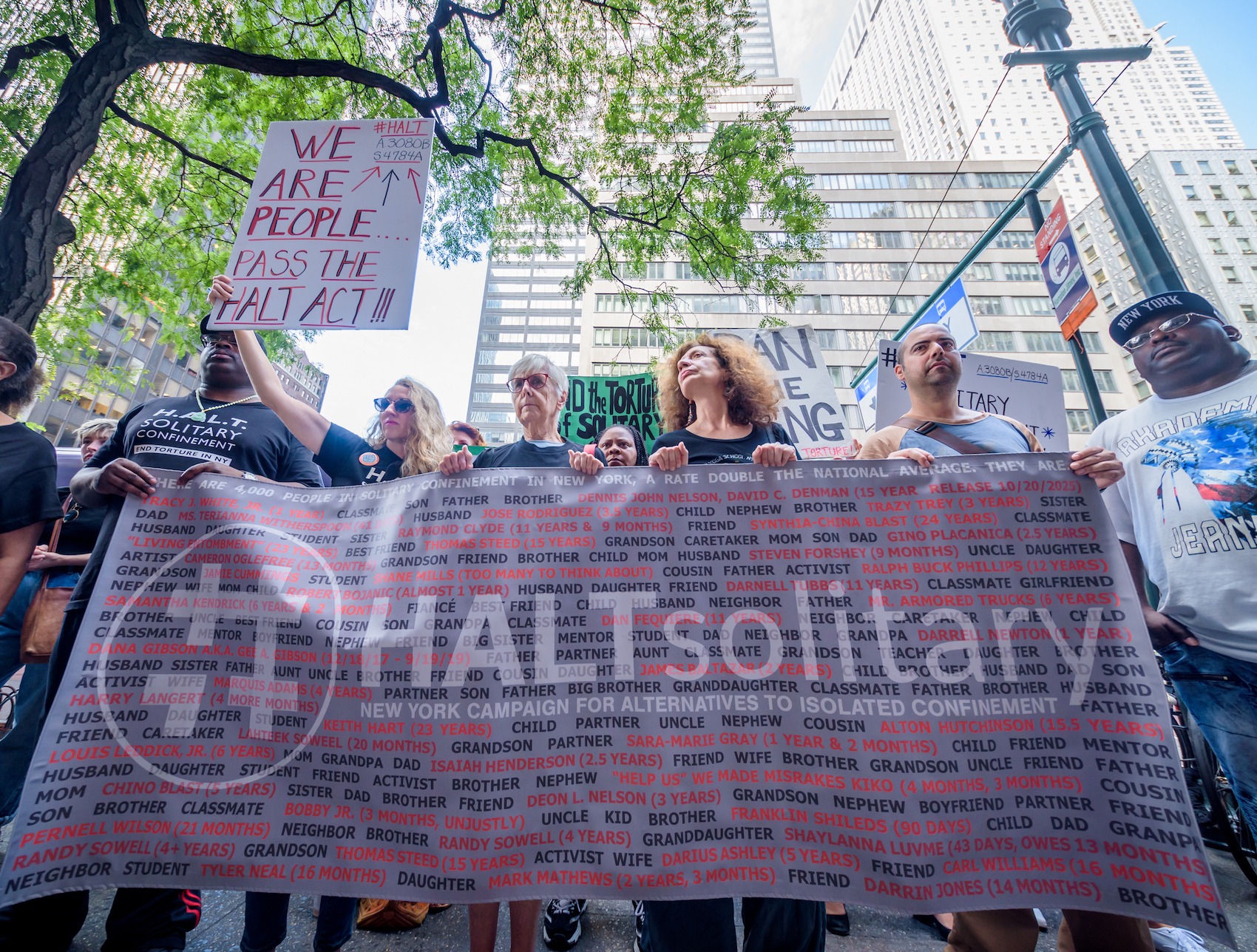States Should Follow New York’s Lead on Restricting Solitary Confinement
Prisons and jails routinely use prolonged solitary confinement—holding someone in a cell for more than 22 hours a day with no meaningful human contact. New York just passed the HALT Act to limit this inhumane practice, and others states should do the same.

The Point
Prisons and jails routinely use prolonged solitary confinement—holding someone in a cell for more than 22 hours a day with no meaningful human contact. New York just passed the HALT Act to limit this inhumane practice, and others states should do the same.
States should restrict the use of solitary confinement in prisons and jails:
- States should ban prisons and jails from holding people in segregation (the more commonly used term for solitary confinement) for longer than 15 consecutive days. The United Nations has designated the use of solitary confinement for longer than 15 days as torture.
- States should completely ban solitary confinement for individuals who are particularly vulnerable to the devastating effects of such confinement. For example, New York’s HALT Act bans any segregated confinement of pregnant or postpartum people, individuals with a disability, and those under 21 and over 55 years of age.
- States should ensure that limits apply to both disciplinary and administrative segregation. Disciplinary segregation is used to respond to rule violations while administrative segregation is used for purported safety or security reasons. Administrative segregation is often imposed indefinitely, and can last years or decades.
- States should significantly restrict the reasons why a person can be put in solitary confinement. Restrictive housing has become a “broad catch-all” used to respond to any rule infraction, no matter how minor, and to “manage” people with mental health disorders and safety needs, according to a report by the Vera Institute.
Solitary confinement is an inhumane practice that is recklessly wielded:
- The conditions of solitary confinement are brutal, as illustrated by this Second Circuit Court of Appeals opinion: “For the last 22 years, [Imhotep H’Shaka] has been alone in a nine by eleven cell for 23 hours a day, 365 days a year…He goes outside for just one hour a day, where he is put in another nine by eleven cage, this one made of chain fencing. There is nothing in the cage but a concrete floor.”
- Research has shown that solitary confinement causes both physical and emotional harm, and exacerbates mental health conditions. As Prison Policy Initiative explains, solitary confinement can increase the risk of premature death, shrink parts of the brain, inflict “social pain,” and cause a specific psychiatric syndrome.
- Despite the serious harm it causes, solitary confinement is widely used. People inside prisons have been sent to solitary confinement for reasons ranging from having too many stamps to having COVID-19.
- Few states have limits on how long someone can be kept in solitary confinement. Colorado’s Department of Corrections ended prolonged solitary confinement in their prisons in 2017, and New Jersey’s legislature capped solitary confinement at 20 consecutive days in 2019. The Virginia legislature is currently considering a bill that would limit solitary confinement in state prisons and juvenile correctional facilities.
Dive Deeper
- Cuomo Concedes on Two Big Wins for Criminal Justice Reform (in partnership with Solitary Watch). The embattled New York governor, who advocates describe as a longtime impediment to reform, signed bills to legalize marijuana and considerably restrict solitary confinement in the state.
- New York Reins in Solitary Confinement. The Appeal Live speaks with Dyjuan Tatro, Senior Advisor of Strategic Outreach for Democratic Congressional Campaign Committee; and Victor Pate, the New York Statewide Organizer of the Campaign for Alternatives to Isolated Confinement; about the passage of New York’s HALT Act.
- A Virginia Prison Held a Man in Solitary Confinement for Over 600 Days. Virginia’s Department of Corrections has recently settled two lawsuits over its use of solitary confinement—a practice lawmakers are moving closer to abolishing.
- As Use of Solitary Confinement Surges, Advocates Call for Releasing Prisoners. Legal, medical, and religious groups warn in a new report that the widespread use of solitary confinement in response to COVID-19 risks spreading the disease further and undoing a decade of progress.

